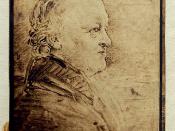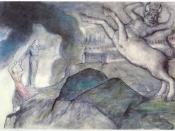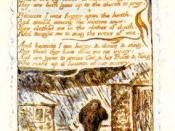"The Chimney Sweeper" is a poem by William Blake about young children who are sent to work in mines in 18th century England. For this analysis, I examine William Blake's life with a concentration on the possible motives he may have had for writing this poem. I also analyze the poem itself and the message Blake was trying to convey.
Analysis of William Blake's "The Chimney Sweeper"
"The Chimney Sweeper" is a poem about young children who are sold by their fathers to work in the mines. They have gruesome jobs, and the workdays are long. However, the boys make the most of it, and they do the job with hope, because God is going to protect them and give them a home in heaven.
To properly look at London in 1757 to middle class parents. When Blake was a child, he saw visions of God and angels.
This would be incorporated into his poems in later years, including "The Chimney Sweeper". His parents did not think he was normal, and kept him home for schooling. He learned to read and write, and then enrolled in an art school at age 10. His passion was for poetry however, and dropped out of the art school at age 14. He took an apprenticeship with an engraver. There he learned about Gothic styles that he could use for inspiration in his poetry.
Blake got married in 1772 to Catherine Boucher. She was illiterate, so Blake taught her how to read and write. They decided not to have children; instead Blake spent time with her and the other members of his family, namely his brother Robert. However, he lost his brother in 1787. Still though, Blake believed that Robert's spirit would be in good hands,



Chminey Sweeper
It was a great work by Blake. I was unaware of the cultural setup of London at that time. However, after my 1st reading, I went to get background information of the happenings in that era. The poem got me thinking on a higher platea.
2 out of 2 people found this comment useful.